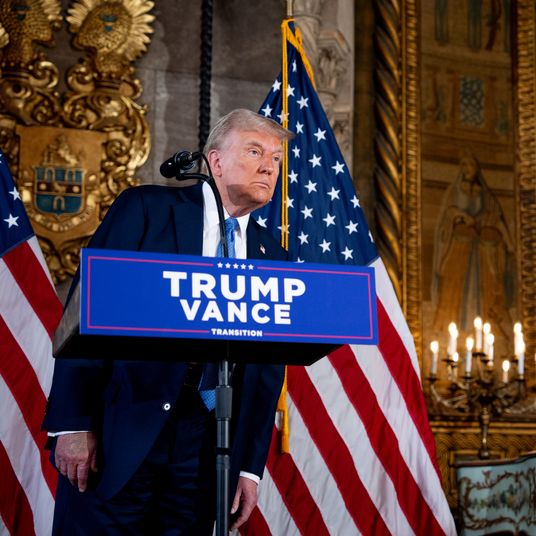If you need a new passport, get one now. And you probably shouldn’t plan trips to any national parks in March. There’s a growing consensus that the government could be forced to shut down next month as emboldened Republicans demand spending cuts that Democrats can’t stomach, and that even some conservative experts say aren’t feasible.
GOP leaders don’t seem eager for this outcome, but it might not be entirely up to them. Freshman Republicans, carried to power by the tea party surge, promised to slash $100 billion from the 2011 budget, and they’re determined to make good on that pledge, down to the penny. Also, with the fiscal year almost half over, such cuts would, as former Reagan adviser Bruce Bartlett has written, “mean abolishing just about every government function outside of entitlements, interest, and defense.” The populist disdain for experts — marked in debate over evolution and climate change — has entered economics. “The fact that we may be completely ignorant to the process here, God bless us, because our ignorance has just saved the American people more money,” Tim Scott, a freshman Republican from South Carolina, told CNN. What we are witnessing is the rise of a new strain of politician: the budget fundamentalist.
“What you’ve got to understand is this is an emotional issue, not a rational issue,” says budget guru Stan Collender, a veteran of both House and Senate budget committees who puts the likelihood of a shutdown at 90 percent. “As far I can tell it has no theoretical economic underpinnings, which is why it’s so difficult for the budget these days to be discussed, because statistics don’t mean anything, equations don’t convince anybody. It is almost a religious belief.”
Perhaps more than “almost.” The tea party has a reputation for secularism, but in fact it’s deeply rooted in the religious right. The GOP’s tea party freshmen made their leanings clear by going after insurance coverage for abortion and funding for Planned Parenthood, but their faith informs their economic stance as well. “It’s no coincidence that socialist Europe is post-Christian because the bigger the government gets the smaller God gets and vice versa,” Senator Jim DeMint, one of the Tea Party’s major Senate supporters, told the Christian Broadcasting Network last year.
Republican elites have encouraged this quasi-theological approach to economics. Last year, Arthur Brooks, president of the American Enterprise Institute, published The Battle: How the Fight Between Free Enterprise and Big Government Will Shape America’s Future, a book much discussed in right-wing circles. “America faces a new culture war,” Brooks argued. Instead of a fight over “guns, abortion, religion and gays,” it’s a struggle between American freedom and European statism.
Thus debt has come to replace homosexuality as a symbol for American decline, and the fervor of past culture wars is being deployed in budgetary battles. And things could soon get truly apocalyptic, given that some tea party-aligned Republicans are balking at raising the debt limit, which we’ll reach later this spring. That would be far more serious than a government shutdown: Treasury Secretary Timothy Geithner has warned of “catastrophic economic consequences, including default on U.S. debt and a suspension of Social Security payments.
In the past, such a scenario would be inconceivable — moderate, business-minded conservatives wouldn’t permit it. But tea party-dominated House sees the American economic situation as dire enough to merit extreme measures. “Congress simply cannot continue to operate under the pretense of ‘gangster government,’ raising the limit upon our whim,” Tea Party Caucus founder Rep. Michele Bachmann wrote last month. Bartlett urges us to take the possibility seriously: “I really think they are crazy enough to do it.”





























